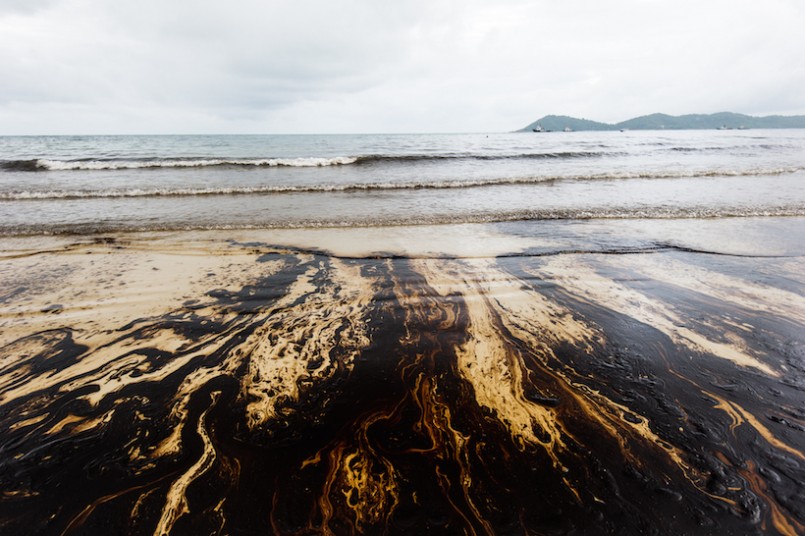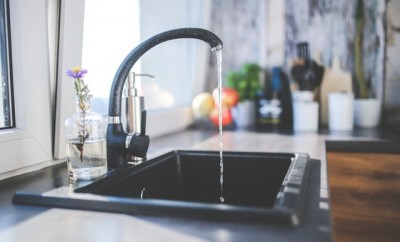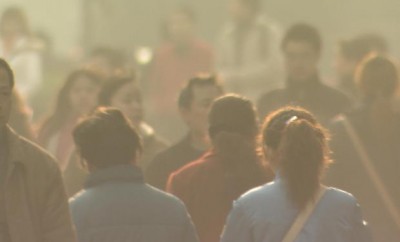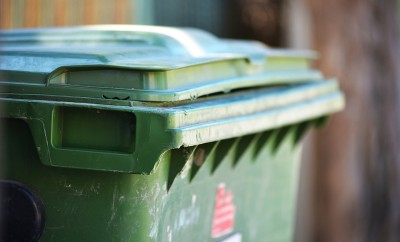Environment
Can oil-eating bacteria clean up our oceans?

Image: Shutterstock/Signature Message
It was back in 2010, when 4.2 million barrels of oil got spilled from a damaged well of British Petroleum in the Gulf of Mexico. Known as the Deep Water Horizon Oil Spill, it was the largest oil spill in the history of the U.S., and it caused great damage to the marine life and ecosystems in the deep ocean floor.
Just after the spill, there were many steps taken to get rid of the oil. Chemical dispersants were released to break oil droplets, oil was skimmed from the ocean, and even burnt. But none of the methods were able to completely solve the problem.
With the oil still in the ocean water, a major question was—will the oil break down naturally or will it persist and sink down eventually, causing extensive harm to the marine environment?
Scientists had long believed that some bacteria are efficient in removing oil from water, and hence, maybe those bacteria could help clean the Gulf.
And in a recent study done on the oil spill in the Gulf, this hypothesis was finally found true. According to the DNA analysis done, some of the marine bacteria were able to break down the chemical components of the oil spilled from the BP well.
Segregating the oil eating bacteria
The study found out that before the spill, there was a diverse variety of bacteria in the Gulf, but after the spill, bacteria became less and less diverse. In fact, only one type of phylum was able to increase substantially. This was a proof that while many types of bacteria were not able to thrive with high quantities of oil, there were some which could persist oil.
The new discovery introduced another round of questions:
- Were a certain kind of bacteria really responsible for cleaning up oil in the ocean?
- Was it possible to understand the genetic code of these bacteria?
- Could the genetic code be used to understand the bacteria’s metabolism and use them for cleaning up oceans?
To answer the questions above, scientists started identifying bacteria that could degrade the two main compounds that are found in crude oil—aromatic hydrocarbons and alkanes.
Now, alkanes are very easy to degrade. Even the sunlight can break them down, the main problem here are the aromatic hydrocarbons which are immensely difficult to break.
It’s a challenge to remove them from the environment and some types of aromatic hydrocarbons can also cause cancer.
Scientists were able to find that many types of bacteria did not just break aromatic hydrocarbons, they fed on it. Thus removing the toxic compound completely from the environment.
Colwelia, was a type of bacteria that scientists had already identified as one of the oil-eating ones, but Neptuniibacter and Alcanivorax were some of the new discoveries. It was also found that many types of bacteria could work together as a community to break down complex oil compounds.
Getting rid of other chemicals
As mentioned before, after the oil spill, 1.84 million gallons of chemical dispersants were used to break oil compounds. But these chemical dispersants were harmful too, both to marine and human life. Though it was found that Neptuniibacter can also break down sulphur, which is a major component of chemical dispersants; it’s still unknown if it can completely breakdown the chemical components in the sea.
With so many new details, scientists were not able to find a single bacteria genome that could completely break down aromatic hydrocarbons in the oil alone.
Saving our oceans
Though it is reassuring and hopeful to see that marine ecosystems have the ability to protect oceans from oil spills, until and unless offshore drilling continues, oil spills will happen.
Even though bacteria are able to clean up oil from majority of the ocean, human intervention will still be required. After all, we are the ones destroying the marine ecosystem, and it’s our responsibility to clean them up.





0 comments